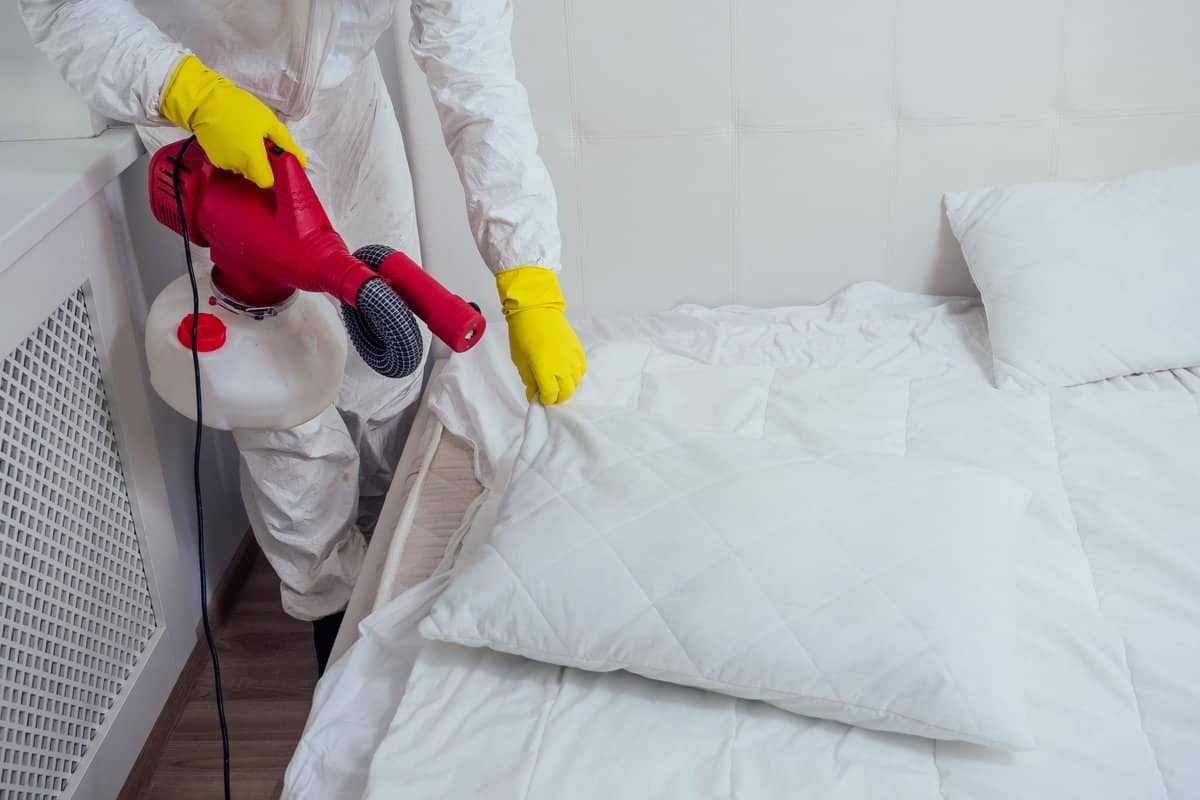Leading Kings Cincinnati Pest Control Services: Pest Control Expert Competence
Kinds Of Insect Control: Which Approach Is Right for Your Invasion?
When faced with a bug infestation, the choice of an appropriate approach for bug control is essential in properly managing the scenario. By exploring the various kinds of insect control approaches offered, people can make informed decisions tailored to their one-of-a-kind situations, guaranteeing a much more effective and sustainable end result in pest elimination.
Chemical Insect Control
Chemical insect control involves using artificial or normally derived chemicals to manage and remove pest populaces effectively. This technique is generally made use of in farming, forestry, and residential setups to battle a wide variety of insects, including pests, weeds, and rats. The usage of chemical pesticides can offer quick and targeted options to pest problems, making it a preferred choice for several people and businesses.
One of the key advantages of chemical pest control is its ability to quickly get rid of bugs, lowering the threat of damages to plants, home, and human wellness. By making use of certain chemicals that target specific bugs, this technique can successfully regulate problems while lessening damage to valuable microorganisms and the atmosphere when applied properly.
However, the use of chemical parasite control additionally increases worries regarding prospective adverse results on non-target varieties, water sources, and human health. It is important to comply with safety standards, apply chemicals responsibly, and take into consideration alternate pest control methods to lessen these dangers and guarantee sustainable pest monitoring methods.
Biological Parasite Control
Biological insect control, also recognized as biocontrol, utilizes living microorganisms to handle and reduce pest populaces naturally. This approach utilizes the power of nature to control parasites without the requirement for artificial chemicals. Biocontrol can include the intro of natural adversaries of the bug species, such as bloodsuckers, virus, or predators, to subdue insect populations. By utilizing the pest's all-natural predators or microorganisms, organic bug control provides a lasting and eco pleasant solution to pest administration.

Mechanical Pest Control
Making use of physical and hands-on methods to take care of insect populaces, mechanical bug control offers a different strategy that does not count on making use of living microorganisms or synthetic chemicals. This approach includes making use of obstacles, traps, or other tools to physically hinder or eliminate pests. By obstructing pest access points or establishing up catches to capture them, mechanical bug control can efficiently lower infestations without presenting chemicals into the atmosphere.
One common instance of mechanical pest control is the usage of mesh displays on doors and home windows to avoid pests from going into structures. This simple yet efficient approach serves as a physical obstacle, keeping bugs out while permitting for proper ventilation. In addition, devices like mousetraps, fly swatters, and ultrasonic repellents fall under the mechanical parasite control category.
While mechanical bug control approaches can be labor-intensive and require regular tracking and upkeep, they offer a environmentally friendly and sustainable remedy for managing bug problems. By incorporating different mechanical techniques, property proprietors can develop a comprehensive insect control technique that lessens dependence on chemical pesticides.
Physical Parasite Control

Some usual physical insect control approaches consist of making use of barriers such as displays or nets to stop pest entrance, catches to catch and remove bugs, and hand-picking to physically eliminate pests from plants or frameworks. In addition, methods like warmth therapies can be used to manage parasites like bed bugs by elevating the temperature to levels that are dangerous to the insects.
Physical bug control is particularly helpful in incorporated pest administration (IPM) strategies, where several parasite control methods are integrated for reliable insect management while lessening using chemicals. By utilizing physical insect control strategies, people can efficiently resolve pest infestations with very little ecological influence.
Integrated Parasite Management
When carrying out physical parasite control approaches as part of pest administration methods, Integrated Insect Administration (IPM) arises as a thorough approach that leverages various techniques to efficiently regulate pest populations. IPM focuses on long-term prevention of insects with a combination of biological, cultural, physical, and chemical tools tailored to specific pest issues. By integrating multiple control tactics, IPM intends to decrease the threats linked with parasites while additionally lowering dependence on chemical services.
One secret aspect of IPM is the emphasis on monitoring and assessing pest populaces to establish one of the most suitable control techniques. This proactive approach allows for very early treatment and targeted techniques, resulting in pest website much more reliable pest monitoring. Additionally, IPM advertises eco-friendly practices by focusing on non-chemical control methods and only using pesticides as a last option.
Final Thought

By making use of the parasite's all-natural killers or virus, organic bug control supplies a eco pleasant and sustainable option to pest monitoring. - Kings exterminator cincinnati
Utilizing hand-operated and physical methods to manage bug populations, mechanical insect control supplies an alternative approach that does not rely on the use of living microorganisms or artificial chemicals.A reliable technique to handling bug populaces without depending on chemical or organic techniques entails the usage of physical insect control techniques.When applying physical insect control approaches as component of bug administration approaches, Integrated Bug Management (IPM) arises as a detailed strategy that leverages numerous strategies to effectively regulate pest populations. Chemical bug control involves the use of chemicals, organic pest control makes use of natural predators, mechanical pest control involves physical obstacles, physical insect control consists of capturing or getting rid of insects, and incorporated parasite management combines numerous methods for an all natural approach to pest control.